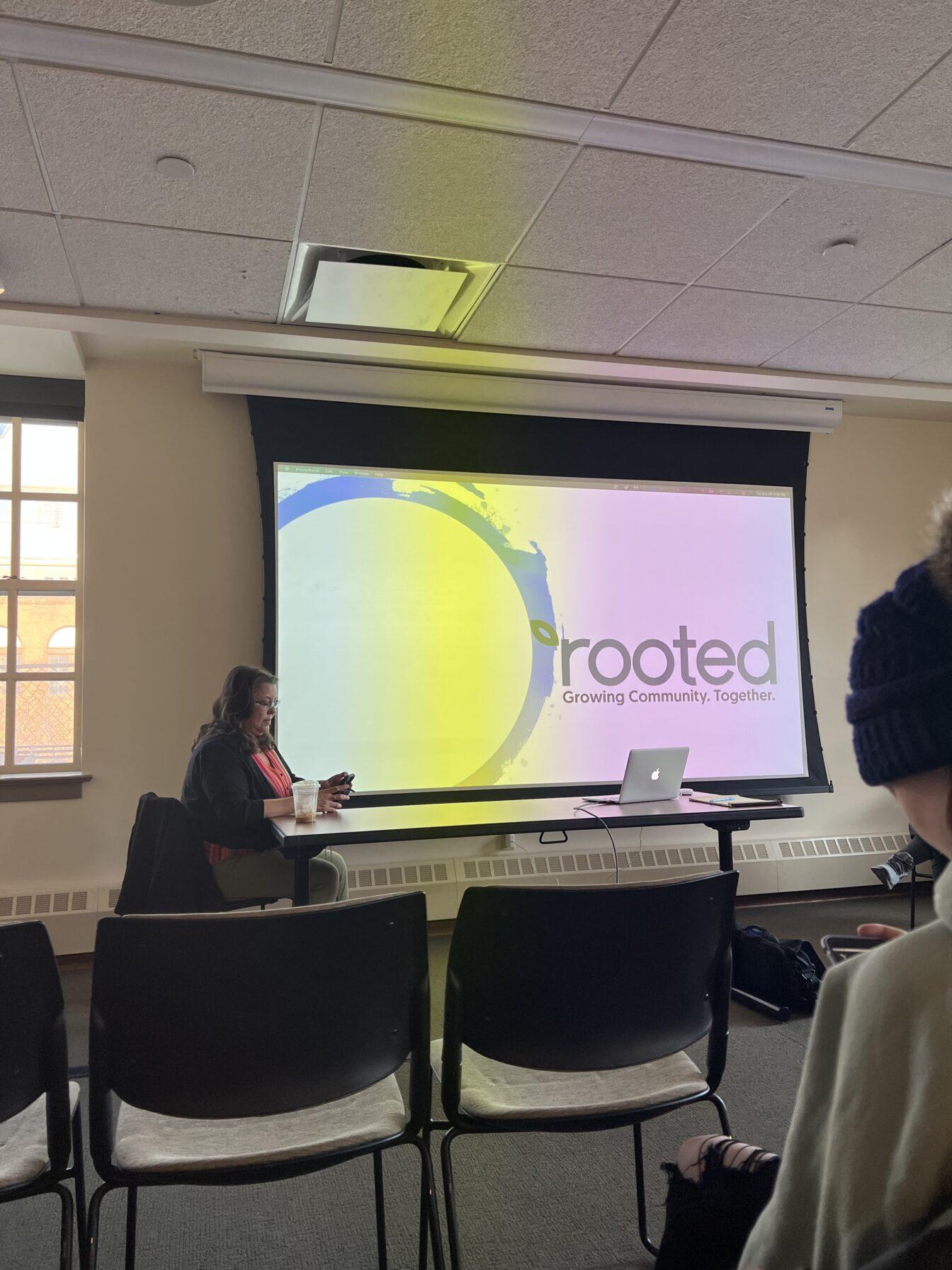The Willis L. Jones Leadership Center hosted Rooted Tuesday night. Rooted is an organization that is dedicated to promoting healthy food access and secure land tenure in Madison’s access improvement areas.
The JLC is part of the Center for Leadership and Involvement. The center works to teach students how to collaborate with others in a way that will improve each other as well as their communities.
At the event Tuesday, Rooted Executive Director Marcia Campbell and Deputy Director of south Madison’s Rooted programs Heidi Rudd shared insights into food insecurity, food sovereignty and areas in need of food improvements.
Rooted has two farms in the Madison community. Troy Farm is a vegetable production and education program that has been a part of Madison’s north side community since 2001. Badger Rock Urban Farm is an educational farm partnered with Badger Rock Middle School and other local organizations in south Madison.
Badger Rock offers school classes in the garden and farm to educate students on organic farming. The farm is located next to Badger Rock Community Center, which offers a community garden, educational classes, virtual cooking classes and more, according to their Facebook.
Community Groundworks and Center for Resilient Cities had been in Madison for over 25 years until they merged to become Rooted in 2020. Campbell said it made sense to merge the two nonprofit organizations for greater resourcing to achieve their goals for the Madison community.
When COVID hit, Rooted pivoted from an educational organization to a more production based organization, boosting their food production by 40%, Campbell said. They worked to create a joint culture between the two organizations in early 2019 through a process led by the Young Women’s Christian Association.
“This was a really great racial equity and inclusion process that was important for us to both surface the traditional historic systemic oppression, racism, enslaving people, all the things that have gone on in the US that are bound up in the food system,” Campbell said.
Rooted has dedicated time into resolving the inequities that the pandemic intensified. The Dane County Food Council had a consulting firm come in and do a review of the impacts of the pandemic on Dane County’s food system, which was just released this March.
The firm found that the food system networks that have historically excluded BIPOC continued through the pandemic, some even intensifying, according to the executive summary on the Food Council’s website.
Some highlights of the report include that Dane County has 2,566 farms, over 4,000 community garden plots, 10 food pantries and 26 farmers’ markets. The report also estimates that Dane County lost roughly 5000 acres of farmland to urban suburban, or rural development from 2010 to 2020.
Food access was a major concern during the pandemic. The report found that food pantries have been recovering from financial hardships that occurred during the pandemic. However, the report found that in Dane County, funding prioritized local food sourcing, providing income to farmers and food to those in need.
Over one in eight Wisconsinites lived in food insecure households in 2020, one in five of them being children, according to the report.
Rooted is mostly focused on the priority of community involvement by those most directly impacted by structural racism. Rooted’s Community Garden Network staff has helped a lot of growers, particularly those in the Hmong community, to get back on their feet after the pandemic.
Campbell and Rudd said they hope to include more Indigenous voices in their future growing seasons, keeping cultural respect at the forefront of every decision they make for Rooted.


